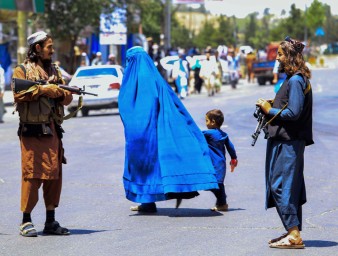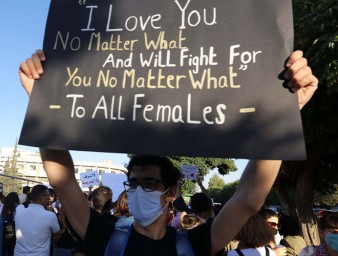Surge in violence against children must be addressed with a rights-based approach
29 March 2021

Violence against children, as well as new forms of sexual exploitation and abuse both online and offline, have been surging as a consequence of COVID-19 lockdowns, according to a new report.
The report, by the UN Special Rapporteur on sale and sexual exploitation of children, Mama Fatima Singhateh, was presented to the 46th Session of the Human Rights Council in Geneva, Switzerland.
This increase in violence and abuse “threatens to erode further the situation of millions of children worldwide who are already in a precarious socio-economic situation,” said Singhateh, when presenting the report.
Children may well be among the biggest victims of the crisis in the long term, says the report, because their education, nutrition, safety and health will be significantly impacted. The pandemic has left the lives of millions hanging in the balance. UNICEF notes for example that the number of children living in multidimensional poverty has soared to 1.2 billion, a 15 percent increase since the pandemic hit in early 2020.
Such mass-scale economic fragility, combined with the effects of lockdowns, has had several tragic consequences in terms of violence and abuse against children.
Online abuse is on the rise. With children spending increased unsupervised time online, sexual exploitation and cyberbullying has escalated.
The pandemic’s disproportionate impact on girls is also noted in the report. Under confinement, many girls have been exposed to physical and sexual violence at home, frequently by the same abusers. At the same time, they have less access to sexual and reproductive healthcare or to gender-based violence services, as in many places these are not considered ‘essential services.’ Additionally, harmful practices such as child marriage are likely to rise, says Singhateh, with prevention programmes being paused and families facing increased poverty making this decision.
New approaches to trafficking
The COVID-19 crisis has changed the usual models of trafficking and exploitation, according to the report, and criminal groups dedicated to sexual exploitation have been very quick to adapt their ways of working, by escalating the use of online communication and exploitation in homes.
“Crises tend to fuel impunity, the breakdown of law and order and the destruction of communities, and foster the conditions in which trafficking and other forms of exploitation flourish, often past the point at which the crisis ceases,” says Singhateh.
In some countries, restrictions and closures of hotels and entertainment venues have resulted in children being sold by traffickers inside vehicles. “Drive by” sale of children has been observed in several countries. And, instead of at physical locations, children are now frequently being sold by social media and messaging applications.
With cuts in humanitarian aid and heavy restrictions on travel, there are also several reports from refugee and migrant camps indicating that children have been sold for food and basic supplies, and that children themselves have been forced to engage in sexual activities in exchange for food.
Prevention strategies, and the importance of child participation
“The pandemic not only is exacerbating the existing plight of children, but it is further risking the reversal of many hard-won achievements made towards the 2030 targets,” states Singhateh.
She has made a number of recommendations in her report. Firstly, she encourages a preventative approach and urges Governments to put in place protection systems based on human rights even before disaster strikes in order to avert or mitigate the increased risks of violence, abuse, neglect and exploitation of children.
The report also recommends better data collection and the development of rapid assessment tools to evaluate the impact of the pandemic on essential services for victims.
Finally, and crucially, when decisions are being taken and strategies are being developed, children’s input must be sought.
“Children and young people will face a new and a different reality after the crisis,” concludes Singhateh. “Child participation has never been so critical to the development of any national strategy based on child rights that is designed to prevent the sale and sexual exploitation of children and to ensure children’s protection, recovery and reintegration.”
29 March 2021




